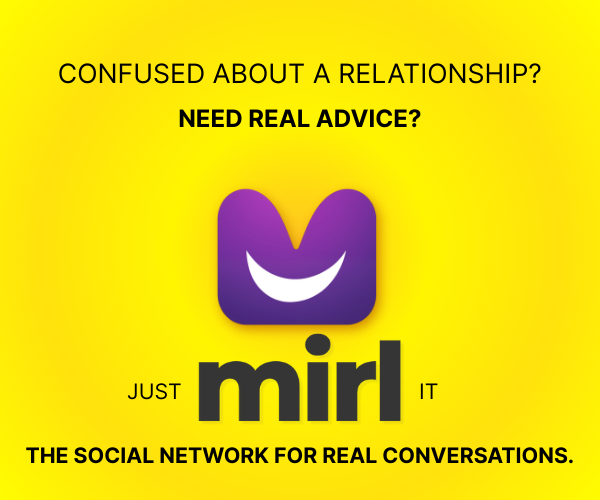Selfishness in Relationships: 15 Tips to Do the Right Thing

Being selfish is okay once in a while, especially in relationships. But is there ever a place for selfishness in a relationship? And if so, when?
Selfishness is one of the negative traits that a person can possess. Although it is a general guideline to not be selfish at all, most people are still victims of their own whims.
The urge to become selfish pops up when you least expect it. Nobody really goes out of their way to be selfish. It usually occurs when someone asks you for something that you don’t want to give.
Of course, to love someone else, you do need to be able to love yourself; but you don’t want to take your self-love too far. Here are some general guidelines on what selfishness is in the first place, and when it may or may not be okay to act a little self-centered in your relationship. [Read: Self-centered person: 40 signs & ways to change yourself or deal with one]
What Makes a Person Selfish?
Being selfish is not limited to worldly possessions. A person can become selfish of their time, their attention, and even their understanding.
There are different ways for a person to be selfish. It’s not always a bad thing. When you are selfish because of greed, envy, and pettiness, it is a bad reflection of your selfishness.
Being selfish can be an act, but it can also be an inherent trait. Selfish people think only of themselves and refuse to help those who are in need.
When you are selfish because you can’t afford to give something away or if you can’t sacrifice yourself for that purpose, it’s not bad at all.
We are all guilty of being a little self-centered at one point or another, but it doesn’t mean that we shouldn’t try to be selfless now and again. [Confession: Never make someone a priority when you’re only an option: The truth]
How Does Selfishness Play Into Relationships?
When we are in a relationship, we are sometimes guilty of only thinking of ourselves, even when we don’t realize it. It can manifest as something as small as starting a fight for attention, or it can be as big of an issue as refusing to listen to your partner’s requests.
Issues like these will come up now and again, but you are supposed to learn from them. Be wary of making a habit of these types of problems.
There will come a time when you need to be selfish, but it’s only acceptable when it’s for a good cause. It is also acceptable when you have less than enough to give – not just physically, but also emotionally.
When Are You Allowed to be Selfish in a Relationship?
Is there ever a time when selfishness can be justified or even required in a relationship? Of course, there is.
1. When your partner doesn’t spend enough quality time with you
In order for a relationship to succeed, you and your partner must invest enough time to bond. Even if you’re in a long-distance relationship or have problems accessing communication tools, you are obligated to spend a portion of your time with your partner. [Read: How much time should couples spend together: 24 clues to your number]
2. When you feel strongly about a decision that affects you
Doing something that your partner doesn’t agree with can be considered selfish. Sometimes, our instincts can be the best indicators of whether or not we’re making the right decision. If you are ready to bear the responsibility of the consequences, this can be one of those times when being selfish works out for you.
3. When you don’t have enough resources to give
Time, energy, and money are some of the resources that couples share. If you don’t have enough to give, it is okay to be selfish. You can’t forsake yourself for your partner if it means you’ll end up losing more than you can afford.
4. When you’re taking on too much
Being a couple requires certain responsibilities. Being present is one of them, but there are also other responsibilities, like taking care of your partner. When it proves to be too much, it’s okay to back down and ask for help instead of giving it. [Read: 38 signs & traits of a happy, healthy relationship & what it should look like]
5. When Other People Meddle in Your Relationship
When other people involve themselves in your relationship without your prompting, it’s okay to be selfish by shutting them out. Friends and family can help you, but there are times when you need to do things with your partner on your own.
6. When You Are Miserable
When you are unhappy and your partner doesn’t have the ability to help you, you must do things on your own and find the happiness that you need.
7. When Something You Want Will Benefit You and Your Partner
When your partner fails to understand the necessity of something that you want, it’s okay to be selfish and decide this on your own. Just make sure that you are making the right choice and that you can take full responsibility when it costs you.
8. When You Become Too Selfless
Giving too much can take a lot out of you. Some people think that this is the right way to live, but giving too much means that you’re not leaving enough for yourself. If you are left with nothing, you end up hurting your partner in the process. [Read: Selfish people: 20 ways to spot and stop them from hurting you]
When Shouldn’t You be Selfish?
Just as there are instances when you need to be selfish for the sake of your relationship and yourself, there are also instances when you should learn to be more giving, for both your sakes.
1. When Your Partner is in Pain
When you see that your partner is hurting, it’s okay to give them what they need, like your time and attention. Ask for time off from work, prioritize them, and try your best to help them.
2. When Your Choices Hurt Other People
In this case, you must be aware enough to know that your actions are hurting people. Be more observant and see how your actions are affecting others.
3. When You Have More Than Enough to Give
Some of us are luckier than others, which means that it’s okay to give when you can afford to. If you have some free time, spend it with your partner.
If they need help to get back on their feet, offer to pay for their share until they can. When the opportunity to help presents itself, take it.
4. When You’re Being Vindictive
When your partner inadvertently hurts you, you should hold back on taking any sort of revenge. Hurting someone on purpose is a form of selfishness. It is better to discuss things and vent your frustration than to seek revenge. [Read: Am I in an abusive relationship? 66 early signs, effects & ways to get out]
5. When You’re Being Petty
This is the same as being vindictive, but this trait is usually caused by immaturity. People become petty when they resent not getting their way. Being in a relationship means that there’s no room for immaturity like that.
6. When You Want Something Unreasonable
If you can’t have something you want, let it go. Don’t throw a fit and don’t guilt your partner into giving it. Accept that your partner can’t give you everything you want and you’ll be happier for it.
7. When Your Partner Needs You
If your partner doesn’t know how to ask you for something that they need, step up and offer it yourself. Being generous is the exact definition of selflessness. Giving something that someone needs is the point of caring for and loving someone.
You might think that there’s no room for selfishness in any relationship, but it is necessary in certain situations. Being selfish is perfectly fine when it’s not motivated by greed and envy, so consider the guidelines we showed you above.
[Read: Are you selfish in the relationship? 19 signs you’re being a user]
Once you truly understand when selfishness in a relationship is okay and when it isn’t acceptable, you can help your partner understand your decisions better and also connect better with each other.















